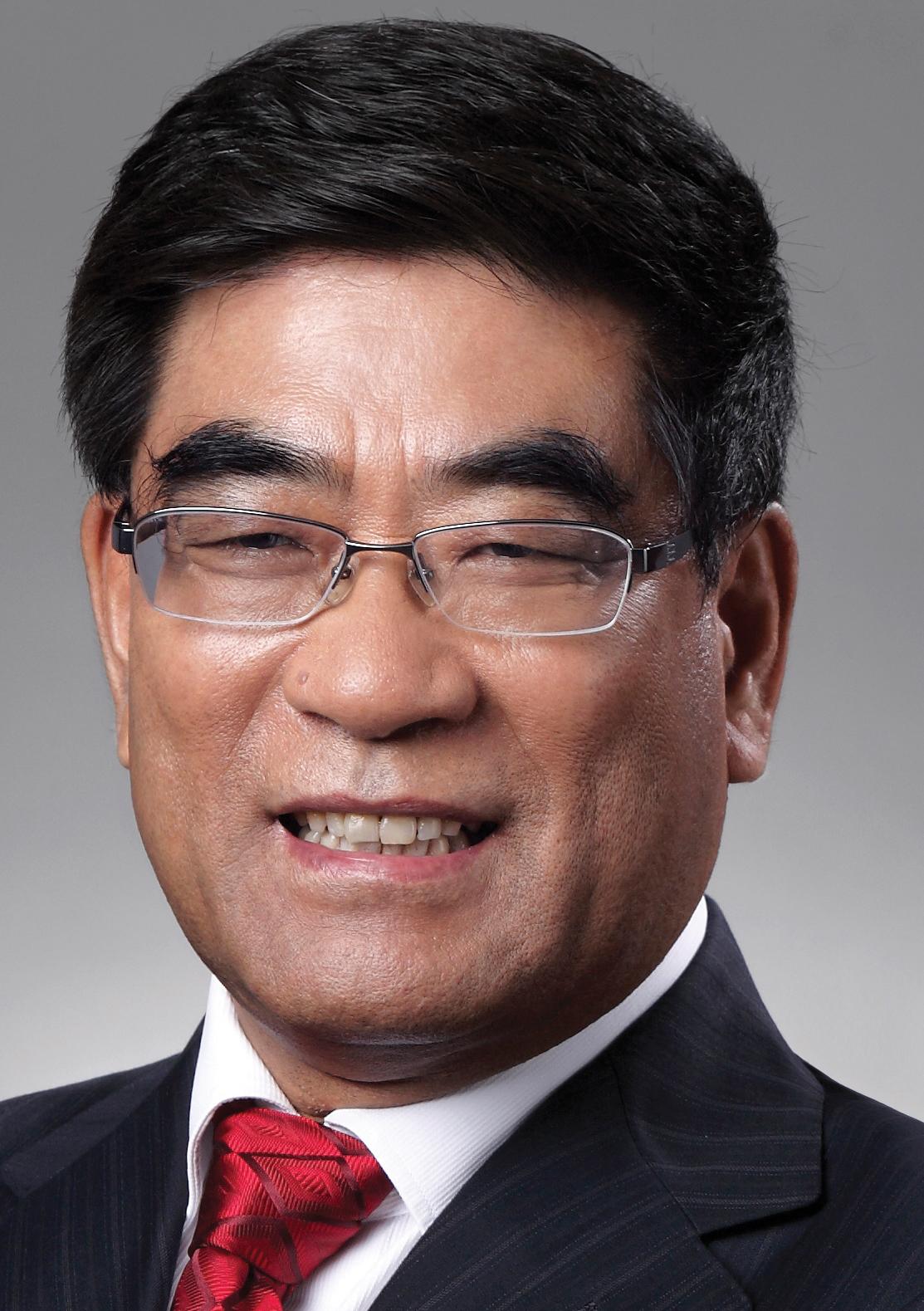The world is fast coming to terms with the need to fight climate change, and nowhere is the need for change more obvious than in China, which consumed over 25% of the world’s energy in 2020. With this in mind, the Chinese government has set the goals of peaking carbon emissions by 2030 and achieving carbon neutrality by 2060.
In this interview, Fu Chengyu former chairman of SINOPEC and former chairman and CEO of CNOOC, which together dominate China’s energy world in terms of oil production, distribution and sales, discusses how the new carbon emissions targets will affect the traditional energy industries in China, the need for a shift in mindset, away from fossil fuel reduction towards carbon management, and the importance of remaining steadfast in reaching your goals.
Q. How will China’s new carbon targets affect demand for oil and gas in the country? And how do you see the demand trend changing in the future?
A. China has definitely entered a green development stage, and the goal of carbon neutrality and an ecological civilization should guide our sustainable development. Whether it is the technology-driven development we have talked about in the past or the higher-quality development approach we are discussing today, our aim is to achieve healthy and sustainable development.
Now that the world is committed to solving climate change issues, China has also made its own commitment to peak carbon emissions by 2030 and reach carbon neutrality by 2060. The country understands that there needs to be a fundamental change in the way human society develops as a result of climate change and although the promises we’ve made are ambitious, China will try to reach these goals ahead of time. This will require two major shifts, the first of which is working out how to increase the speed and strength of development of renewable energy sources and the other is figuring out how to adjust the structure of the traditional energy sector through the development of new energy.
In the future, new energy will account for a growing proportion of energy supply and the proportion of traditional energy needs to drop, but this won’t be an instantaneous change—it will happen gradually over the next 10 or 20 years. China will peak carbon emissions in 2030, after which there will be a decade of discovery and progress made on lowering the proportion of traditional fossil fuels in the energy mix as soon as possible.
Though it is very difficult, China knows this is an opportunity for development. This is our opportunity to enhance technological progress, an opportunity to transform the development mode. So, as long as we can overcome the difficulties, Chinese enterprises and China will create a brand new future. In general, I am confident that China can fulfil its commitments.
Q. What changes are required in the immediate future?
A. The current transition period of the next 10 years, is the time when China will enhance its ability to manage the carbon emissions of traditional energy sources. At the moment, due to soaring global energy prices, the difficulties associated with a large short-term reduction in emissions are quite high, but we still have time. So we must make good use of the coming years to develop a plan, a blueprint that can guide our work step-by-step so that our carbon dioxide emissions will decline gradually after 2030. And that’s what China is going to do.
Chinese society differs from Western societies in many ways. One of the main differences is that it is a unified country, so as long as the government is determined to move forward, all enterprises will follow. The traditional energy companies are now coming up with major plans that will help them, and the country as a whole, to reach these goals. These plans are also divided into the two approaches I previously mentioned. The ability to achieve the requisite increase in new energy is limited, in the short-term at least, but in the meantime, the intensity of carbon dioxide emissions needs to be lowered. It is unlikely that the consumption of fossil fuels will drop rapidly over the next 10 years, but we can and should reduce the carbon dioxide emissions caused by their ongoing use.
Q. For many, the reduction of fossil fuel usage is paramount, no matter how difficult it is. To what extent, do you share this view?
A. We need to shift our mindsets to a way of thinking that doesn’t necessarily view fossil fuels as the enemy, but rather sees carbon dioxide or greenhouse gas emissions as the problem. We need to spend our time and resources on discerning how to reduce such emissions. This is going to be very difficult for all developing countries to do, especially over the next decade, but we have to have a goal that recognizes that even if there is no significant reduction in fossil fuel consumption, there must be a reduction in carbon dioxide emissions. And we need to take a variety of approaches towards achieving that goal.
China and Chinese enterprises, especially the traditional energy companies and enterprises in other industries with high energy consumption and high emissions, need to increase their investment in technological innovation and research and development (R&D) to improve energy efficiency and reduce carbon emissions. China’s energy efficiency is 2.5-3 times worse than that of developed countries, and 1.7 times worse than the world average, so there is a lot of room to improve our energy efficiency and reduce energy consumption through technological innovation and R&D.
It’s a massive opportunity because if we reduce energy consumption, our emissions will naturally fall. This is the low-hanging fruit for China. And getting there will require encouragement via government policies and regulations. For example, strict limits on the production of high energy-consuming enterprises should be put in place—if you can’t improve energy efficiency, you need to limit production. On the other hand, when you can improve energy efficiency in an enterprise, we should provide strong policy support for research and development.
But also, while we are striving to achieve carbon neutrality, we must keep a political, economic, ecological and energy balance, and not just blindly address a single aspect.
Q. So what do you think are the obstacles to China fulfilling its goals?
A. As with any problem like this, there will be minor setbacks as we go, but what really matters is our mindset. We must accept that there will be a transition period, and we shouldn’t expect to meet the goals in just a year or two. We need to be practical and realistic and we need to have a roadmap with a timetable of what we want to achieve and when.
I think the biggest problems we’ll hit in the next few years won’t be technical or operational, but a problem of our confidence and belief in our concept.
We are talking about reaching a carbon peak in 10 years, but how high is the peak? Also, the goals we set for 2030 and 2060 are for China as a whole. So we have to understand that different provinces and regions will have very different outlooks and that we need to analyze things holistically. For example, we have some major fossil energy provinces which play an important role in the national energy supply, and if the fossil fuel-based energy production of such provinces reduces too much, it will cause energy supply problems for the country. So in order to keep an overall balance, we can reduce more fossil energy consumption in other provinces.
Some of the more developed provinces or cities rely mainly on service industries and have lower energy consumption. So we can ask such areas to reduce their fossil energy consumption/emissions more in a non-mandatory and voluntary way, and this can compensate for the other areas in which it is impossible to make big cuts at the moment. Also, we need to allow areas which have high costs related to carbon reduction more time to reach the goals, compared with areas that have a lower cost. In general throughout the transition period, we just need to be cognizant of the required balance.
Q. How should we facilitate an initial shift in focus away from fossil fuel reduction towards carbon reduction?
A. China should increase R&D investment into carbon capture, utilization and storage (CCUS). With CCUS, we need to focus on carbon dioxide as our problem and we need technology to reduce carbon dioxide emissions and at the same time, we need to turn CO2 from a problem into a resource. Therefore, China needs to increase its R&D and investment in the utilization of CO2. The cost of this will be much lower than shutting down the coal mines and not using oil, which would lead to an unaffordable inflated cost of living and generally slowing the development of the economy.
Concerning CCUS, China is doing what Western countries are doing or have done—capturing carbon and then storing it. The scale of storage is relatively small at present, but if we can utilize all the abandoned waste oilfields in our country, there is room for a significant amount more. In general, though, we should put more emphasis on utilization rather than storage. At present, we have taken a chemical approach to utilization, but it may now be better to mineralize the carbon [to turn it into a solid mineral, such as a carbonate]. So far, some companies have begun R&D on the relevant technology and there are encouraging results. I estimate that in about a year, there will be a good industrial CO2 mass utilization project in the Chinese market.
I must stress the importance of fully utilizing the transition period of the next 10-20 years. Once that is complete, I think everyone will be able to bear the cost of not using fossil energy on a large scale, but at the moment, it is simply unaffordable. The West has made some promises to help, but I don’t quite believe they can all deliver, especially their promises to support developing countries with $100 billion a year. They’ve been saying that for the last 10 years and we’ve not seen any of that money yet.
Q. China is not the only country that needs to change its energy matrix. What needs to happen internationally in order to safeguard the planet?
A. We need to think differently because it’s a problem related to human survival and living conditions, and based on what I’ve said here, I think China may do better than is expected of it. But at the same time, this is a worldwide issue. So, do we need to establish unified rules for the whole world, a unified standard? My answer would be yes.
Maybe some countries can achieve more and some will not be so perfect, but these standards, these norms, these principles, should be accepted by all. When they are being developed, we need to take everyone into account—developing countries, developed countries and island countries in different regions—so that everyone has the same opportunity to progress. It’s also not just about environmental management, we also need to establish a unified standard for carbon footprint verification and carbon accounting, so that reporting and data is comparable.
Then on the basis of comparable data, we need to establish a unified global market for the trade of CO2 which will allow different countries to use this market to develop themselves. At the same time, concerning the commitment made by countries to support the less developed countries or island countries in order to help them reduce the emission of greenhouse gases and meanwhile help them continue to develop, there should also be a set of unifying guidelines.
Interview by Patrick Body
Fu Chengyu is the former chairman of SINOPEC and former chairman and CEO of CNOOC. He has over 40 years of experience in the oil and gas industry and has been a member of various Chinese government committees and the Honorary Chairman of the UN Global Compact Network China. He is also Professor of Management Practice of Governance and Innovations at Large Corporations at CKGSB




















